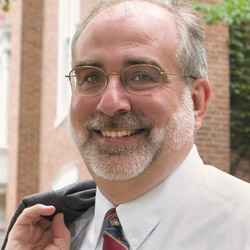Higher Education with a Higher Purpose

Chartered by the legislature of the State of Illinois in 1855, Eureka College was founded by abolitionists who were members of the Christian Church (Disciples of Christ) and believed that higher education had a higher purpose.
These college founders were visionary in their commitment to “non-sectarian” liberal arts education that assumes:
- Faith, reason and science are not in conflict.
- One’s faith is a highly personal matter for each individual to discern rather than providing a single denominational perspective.
- College campuses should be inclusive learning communities in terms of faith, gender, race and class. Higher education should be affordable and accessible to all.
- During the college years, cultivating excellence in learning, service and leadership fosters the mutual development of intellect and character.
 Not only was Eureka the first college in Illinois and the third in the nation to admit men and women on an equal basis, students at Eureka were as likely to have faculty who were women as men, and, not surprising for a college founded by abolitionists in the years following the Civil War, African Americans began to matriculate at Eureka.
Not only was Eureka the first college in Illinois and the third in the nation to admit men and women on an equal basis, students at Eureka were as likely to have faculty who were women as men, and, not surprising for a college founded by abolitionists in the years following the Civil War, African Americans began to matriculate at Eureka.
The theme of higher education with a higher purpose has been echoed throughout the years by Eureka College presidents. President Robert Hieronymus wrote in 1906 that, “We aim at high scholarship, but do not neglect the weightier matter of high character.”
In 1919, President Louis Lehman said, “Eureka College must maintain the very highest standards along moral and spiritual lines,” and not to do so would be nothing less than a “calamity.”
President Burrus Dickinson called for a closer relationship with the church in his comments to the board of trustees in 1940.
More than 60 years ago, Dr. Ira Langston, in his inaugural address as the 22nd president of the college, had it exactly right, in my opinion, when he said, “In 1855, when the elders of this local Christian Church applied for and got the charter for Eureka College, they were not seeking a means of maintaining the status quo.”
Today, Eureka College continues to be a campus where students can explore their own faith tradition as they study the liberal arts, humanities and sciences. And this deep and vital learning is not limited to the classroom.
Whether we call it experiential learning or applied learning, learning by doing is a central element of a Eureka College undergraduate experience.
Service to others is a critical facet of learning by doing that eventually leads to the formation of leadership—especially during the college years. Our most famous graduate, Ronald Wilson Reagan, Class of 1932, put it this way:
One of the first things I found out about my particular college was that, because of its size, we assumed a lot of assignments. Most of the time we took a whole host of leadership roles simply because there was no one else to do it. It was my first taste of stepping forward and assuming responsibility for more than my own life, and I never forgot it. Sometimes, when I think of how little I knew about life, contrasted with how much responsibility I took on at Eureka, it makes me smile. But the college never let me do less than my best.
Even though Eureka’s enrollment has grown three-fold since the 1930s, in terms of opportunities for student involvement, Reagan’s Eureka experience still exemplifies the contemporary student experience at Eureka—a small campus that has diverse, conspicuous and numerous opportunities to lead and serve. Today’s typical student-in-residence at Eureka is involved in three or four organizations, most of which have regular community service activities and projects.
The development of leadership through service at Eureka matches Robert Greenleaf’s concept of “servant-leadership.” Greenleaf wrote:
The servant-leader is servant first...Becoming a servant-leader begins with the natural feeling that one wants to serve, to serve first. Then conscious choice brings one to aspire to lead. That person is sharply different from one who is leader first...The difference manifests itself in the care taken by the servant first to make sure that other people's highest priority needs are being served. The best test, and the most difficult to administer, is this: Do those served grow as persons? Do they, while being served, become healthier, wiser, freer, more autonomous, more likely themselves to become servants?
Is Eureka the only small liberal arts church-related college where students develop, hone and refine their leadership skills through service? Of course not! Other colleges share characteristics and values with Eureka that facilitate the development of leadership through service.
Eureka does have a distinctive legacy of producing servant-leaders among its graduates, including 42 college presidents and seven governors and members of Congress, in addition to the 40th U.S. president. And excellent servant-leaders do not have to be presidents or elected officials per se. Eureka is just as proud of its graduates like Durward Sandifer (Class of 1924) and Jay Hein (Class of 1987), both of whom served U.S. presidents in supporting roles, and other graduates who became leaders in their professions as teachers, preachers, scientists or administrators.
Years before Greenleaf even coined the term servant-leadership, Sandifer described his servant-leadership experience at Eureka:
My general orientation toward life and work, upon the background of a rich family life, was determined by my four years in Eureka College. The thrust of both education and life in Eureka was for me toward community service—national and international—toward contributing and not acquiring. The attitudes, concepts and convictions crystallized then have been paramount in all that I have done in the years since Eureka.
In sum, the “nonsectarian” liberal arts education and the focus on service envisioned by Eureka’s founders was ultimately designed for nothing less than to produce graduates who make the world a better place. Whether it is the elimination of slavery, the formulation of the United Nations’ Universal Declaration of Human Rights, or calling on Mr. Gorbachev to tear down the Berlin Wall, Eureka College founders and outstanding graduates like Sandifer and Reagan have always had an active role in making the world a better place.
Ultimately, to be true to our founders’ vision of higher education with a higher purpose, all Eureka graduates must have the liberal arts background and actual practical experience in leadership through serving others (to paraphrase John Wesley) to do all the good they can, by all the means they can, in all the ways they can, in all the places they can, at all the times they can, to all the people they can, as long as ever they can. iBi

